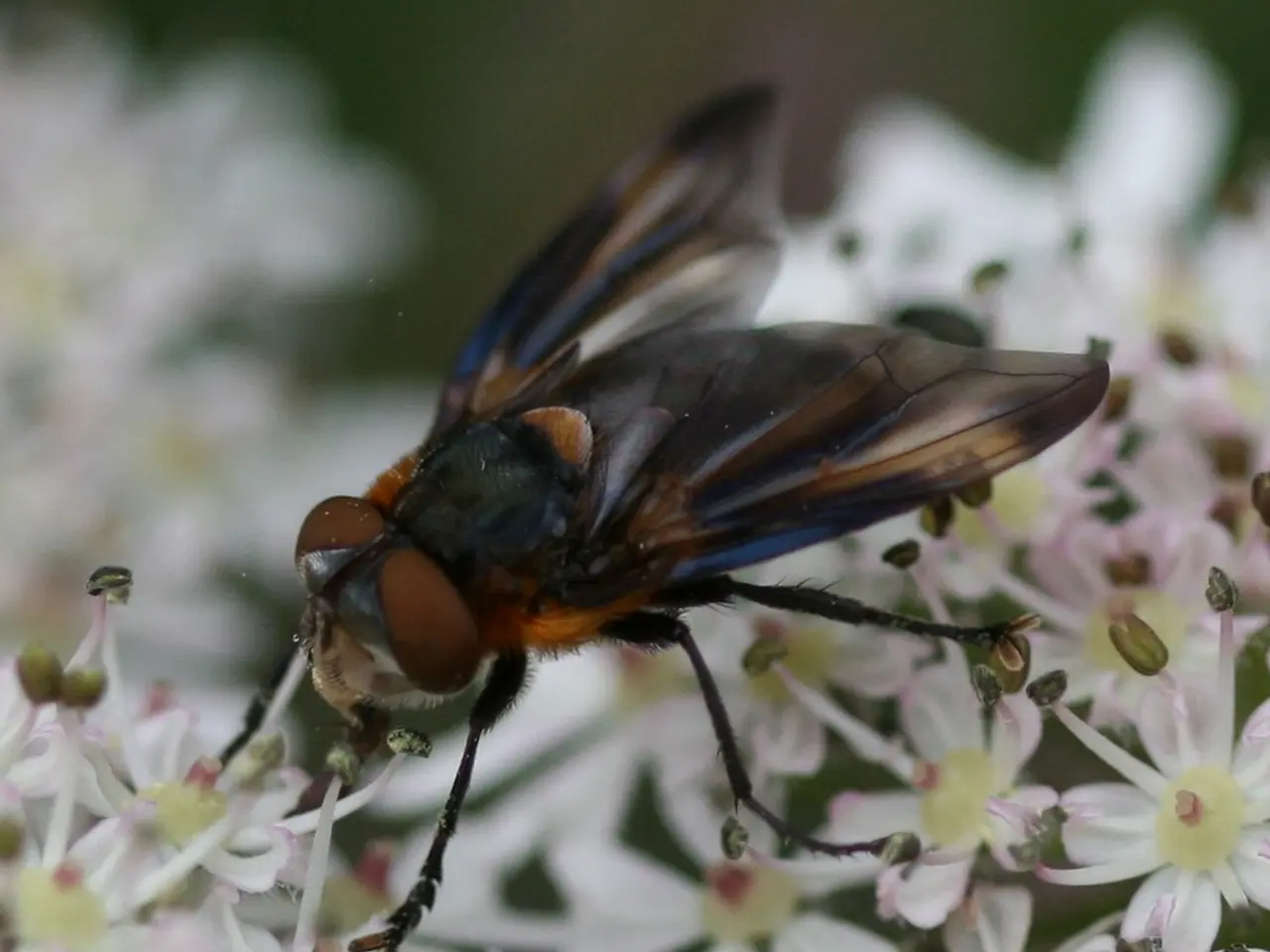Strategies for Defending Horses from Fly Infestations: Six Approaches from Multiple Directions
Protecting Horses from Flies: A Comprehensive Guide
Summer is here, and with it comes the pesky flies that can cause discomfort and health issues for horses. Here's a guide to help you choose the best fly repellents for your equine companion.
Fly Sprays are a popular choice due to their ease of application and ability to cover large areas quickly. Products like Barrier Super Plus Fly Repellent, Equimins Fly Repellent Extra Strength, and Farnam Endure offer varying degrees of protection and benefits. While Barrier Super Plus provides a nice shine and is made with natural ingredients, it may require frequent reapplication on warm days. Equimins Fly Repellent Extra Strength is effective against mosquitoes and midges, lasts long during outings, and offers good value. Farnam Endure provides water-resistant protection for up to two weeks and is effective against over 70 insect species, although it may still need reapplication after heavy rain.
Advantages of Fly Sprays: - Easy and fast to apply - Covers large areas efficiently - Some provide long-lasting, water-resistant protection
Disadvantages of Fly Sprays: - May require frequent reapplication in hot or rainy conditions - Some have strong odors or chemical components - Spray application can bother ticklish horses
Fly Gels and Creams are ideal for sensitive or ticklish horses and targeted areas such as the face or between legs. These products are applied by hand or sponge and often last longer due to their thicker consistency.
Advantages of Fly Gels and Creams: - Targeted application to specific sensitive areas - Often lasts longer due to thicker consistency - Some are colored for easy visibility of coverage
Disadvantages: - More expensive than sprays - Application can be time-consuming - Risk of over-application since full coat coverage is unnecessary
Fly Sheets are lightweight mesh blankets that physically block flies and often include UV protection and extra features for horses with sensitive skin or sweet itch. They provide all-day, chemical-free protection.
Advantages of Fly Sheets: - Provide all-day, chemical-free protection - Also offer UV protection and heat reflection (especially white sheets) - Some designs cover ears and belly fully
Disadvantages: - Must fit correctly to avoid rubs and sores - May be uncomfortable in rain or wet weather, though waterproof options exist
In addition to these repellents, fly boots can protect the lower leg from fly irritation, especially for horses that stomp when irritated. However, they must be fitted correctly to prevent rubbing or slipping.
It's important to note that several diseases, such as Vesicular Stomatitis, Pigeon Fever, Potomac Horse Fever, and Summer Sores (caused by the Habronema worm), can be carried by flies. Proper stable management, including daily or twice-daily mucking out, positioning the muck heap away from the stables, and using covered bins to store feed, can help control fly populations.
Lastly, fly masks are worn to protect the horse's face, with many offering UV protection and different coverage options. Remember, the best fly repellent option depends on your horse’s temperament, specific protection needs, and environmental conditions.
[1] Barrier Super Plus Fly Repellent: https://www.amazon.com/dp/B00025H6NK [2] Equimins Fly Repellent Extra Strength: https://www.amazon.com/dp/B00025H6NK [3] Farnam Endure: https://www.amazon.com/dp/B00025H6NK
- Dogs and cats, being popular pets, also require care to maintain good health and a happy lifestyle in their home-and-garden environment.
- Choosing the right pet food is essential for ensuring pet health, aiming for a balanced diet that suits their age, size, and energy level.
- Keeping pets active through regular outdoor activities, such as dog walks or playtime in the backyard, promotes good health.
- Providing toys for cats and dogs not only alleviates boredom but also helps pets develop essential physical and mental skills to maintain overall wellness.





